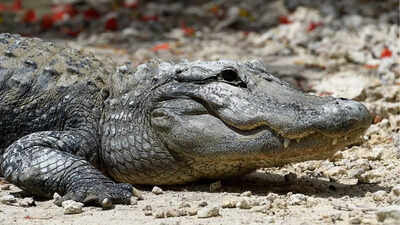ARTICLE AD BOX

The Everglades, which is a unique and fragile wetland ecosystem in Florida, relies on a surprising but vital contributor to its health which is- the Alligator. Often seen as fierce predators, alligators play an essential role in maintaining the balance of this diverse environment.
From creating habitats that support countless other species to influencing water flow and nutrient cycles, alligators help sustain the Everglades’ rich biodiversity. Understanding their impact sheds light on how these ancient reptiles are key to the survival and revival of one of the world’s most extraordinary natural landscapes.
Alligator’s importance in Florida’s Everglades
- Ecosystem engineers: Alligators shape the Everglades by digging alligator holes, which retain water during dry spells and create habitats for many species.
- Support biodiversity: These water-filled holes provide critical refuge for fish, amphibians, insects, and birds, helping sustain diverse wildlife populations.
- Water quality maintenance: Their digging activities improve water circulation and prevent stagnation, keeping the wetland’s water healthy.
- Population control: As apex predators, alligators help control the numbers of prey species, maintaining ecological balance and preventing overpopulation.
- Indicator of ecosystem health: A thriving alligator population signals a healthy Everglades environment.
- Buffer against environmental changes: By sustaining habitats during droughts and other stresses, alligators contribute to the resilience of the Everglades ecosystem.
Mama Gator at Florida Everglades
According to a BBC report, near the Miccosukee Indian Reservation in northern Florida Everglades, the Tigertail family visits a tree-covered island or "hammock" each year.
There, they coexist with "Mama Gator" who is a large female alligator that has lived alongside them for decades. Mama Gator shapes the environment by digging ponds for water during dry seasons and building nests in the rainy season. "Apex predator or not, alligators are actually very helpful and they can change the ecosystem significantly," says Tigertail, who researches alligators for the Miccosukee Tribe's Fish and Wildlife Department.
"During the dry season, a lot of animals – deer, fish, otters, turtles, birds – follow the alligators." The Miccosukee Tribe has long known that alligators like her are vital “guardians of the Everglades,” that are supporting the freshwater ecosystems and are also beneficial for plants, fish and frogs.
Alligators gained recognition after near extinction
Alligators, often dubbed "living fossils," have changed little over the past eight million years, with ancestors roaming swamps alongside dinosaurs.
However, from the 1850s, European settlers armed with rifles pushed these creatures toward extinction. Over 10 million alligators were hunted for their valuable hides used in fashion, while others were killed for sport or amusement. Listed as endangered in 1967, hunting bans helped their numbers recover.
Today, over three million alligators thrive in Florida, Louisiana, and the southeastern US. Alongside conservation efforts, researchers discovered alligators’ vital ecological roles, such as providing safe nesting sites for plants, reptiles, and birds, who benefit from alligators’ protection against predators.
Expert’s views on alligator’s habitat
Mike Heithaus, a biology professor, explains that the Everglades, though lush, is nutrient-poor due to slow rivers carrying nutrients to the sea. During dry seasons, alligators dig diverse holes that create habitats for plants and animals, offering refuge for fish but also traps for birds seeking food.Research from 2023 reveals that alligators don’t just create ponds, they actively maintain them by stirring sediment and adding nutrients through their movement and waste.
This nutrient recycling supports algae, the base of the food chain, boosting the entire ecosystem. Without alligators, nutrient flow and wildlife abundance would decline significantly.
Versatile alligators
This research by BBC highlights a less-known side of alligators, showing them as intelligent and adaptable animals. “While attacks on humans are rare, many still see them as dangerous or strange creatures”, says Murray, who has studied alligators for over 20 years.
People living near alligators notice different traits. For example, a Georgia alligator named Wally was calm enough to serve as an emotional support animal, offering comfort to his owner.
Despite this, it’s advised to keep a safe distance in the wild. “Alligators are powerful carnivores but tend to avoid confrontation”, explains Kendall Osceola from the Miccosukee Tribe, who shares that her community respects strict rules for living alongside alligators. The Miccosukee view them as “benevolent creatures,” which reflects a more balanced relationship.
Also read: New sea monster has been discovered by scientists that was never identified before



.png)
.png)
.png)
















 1 week ago
11
1 week ago
11









 English (US) ·
English (US) ·